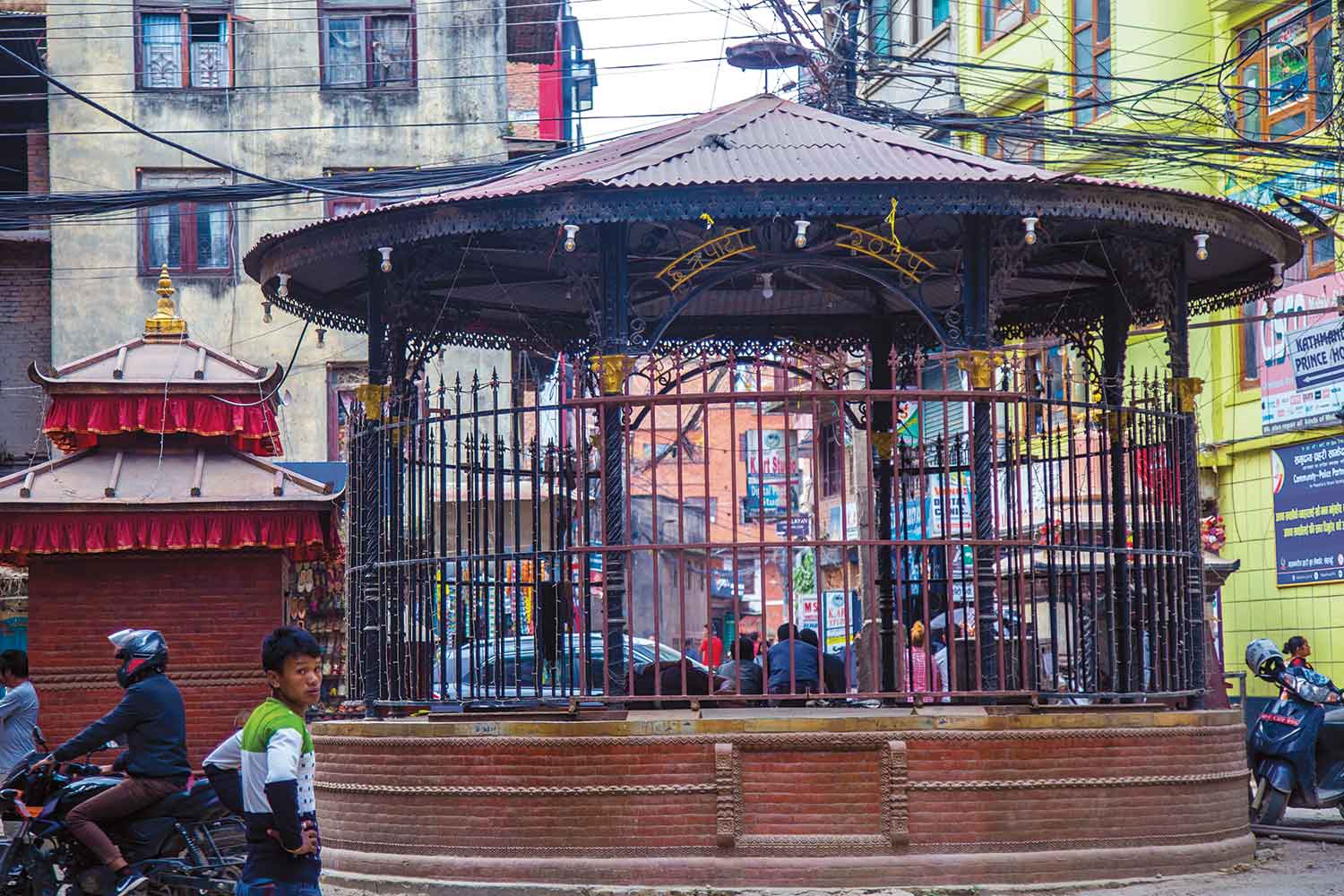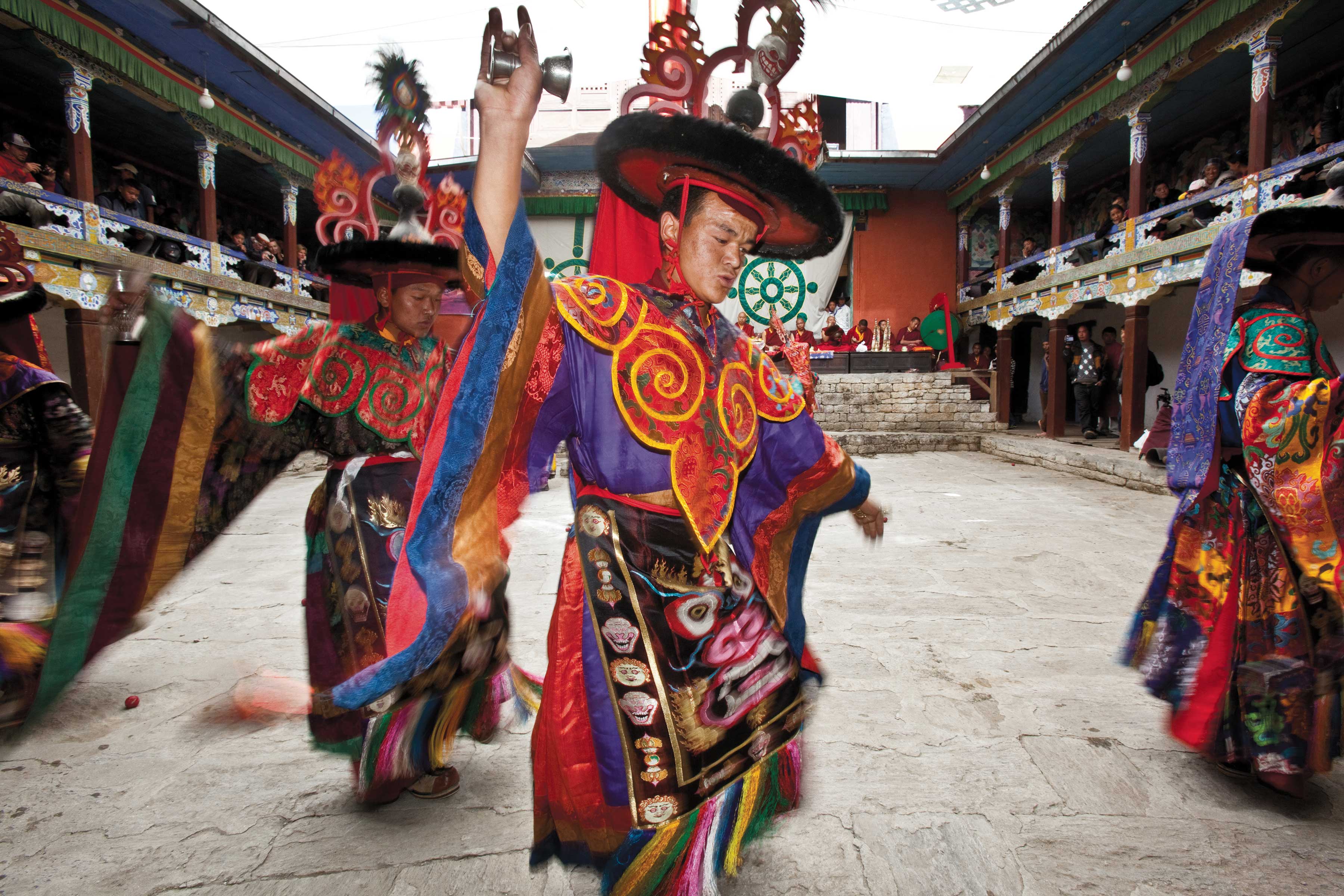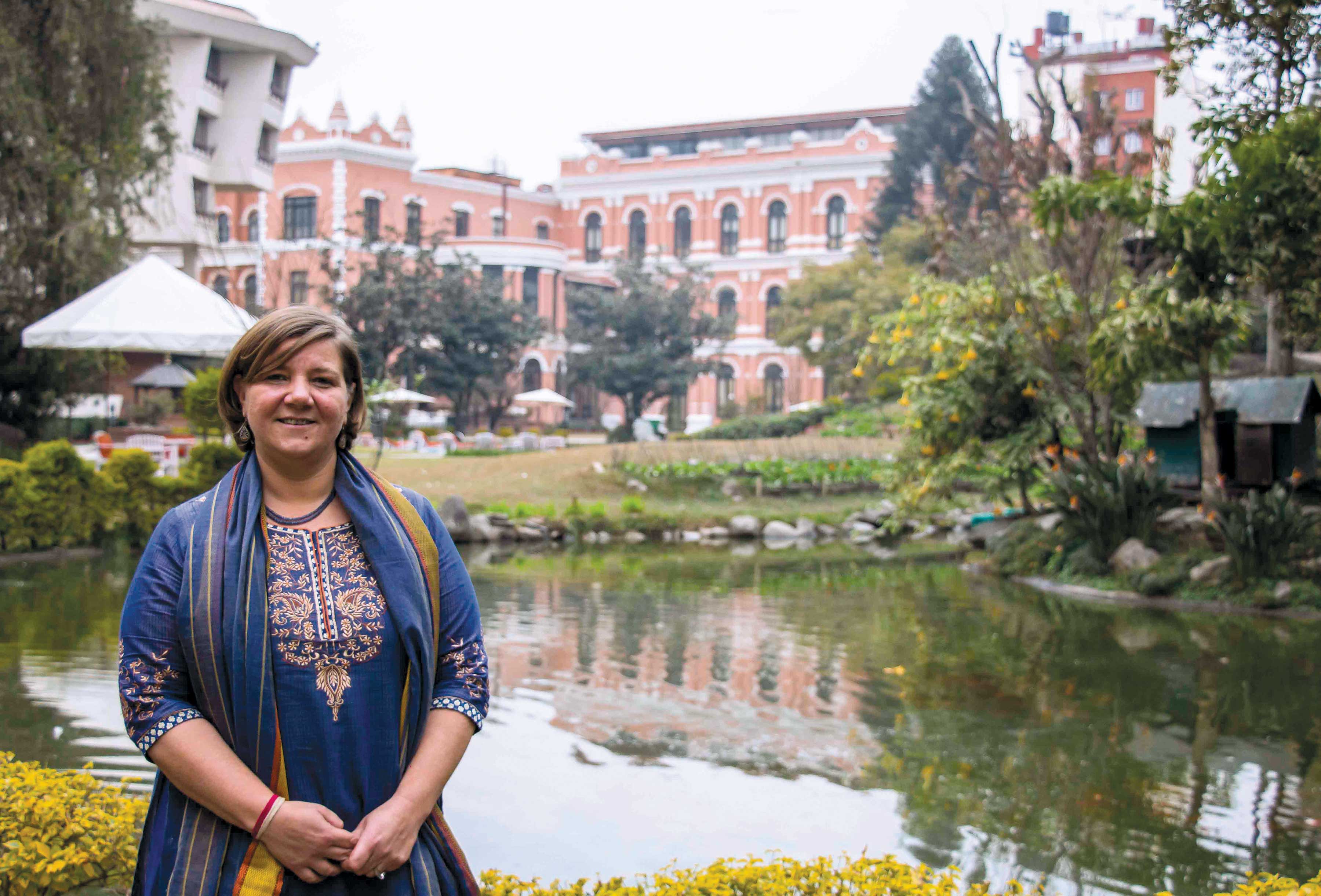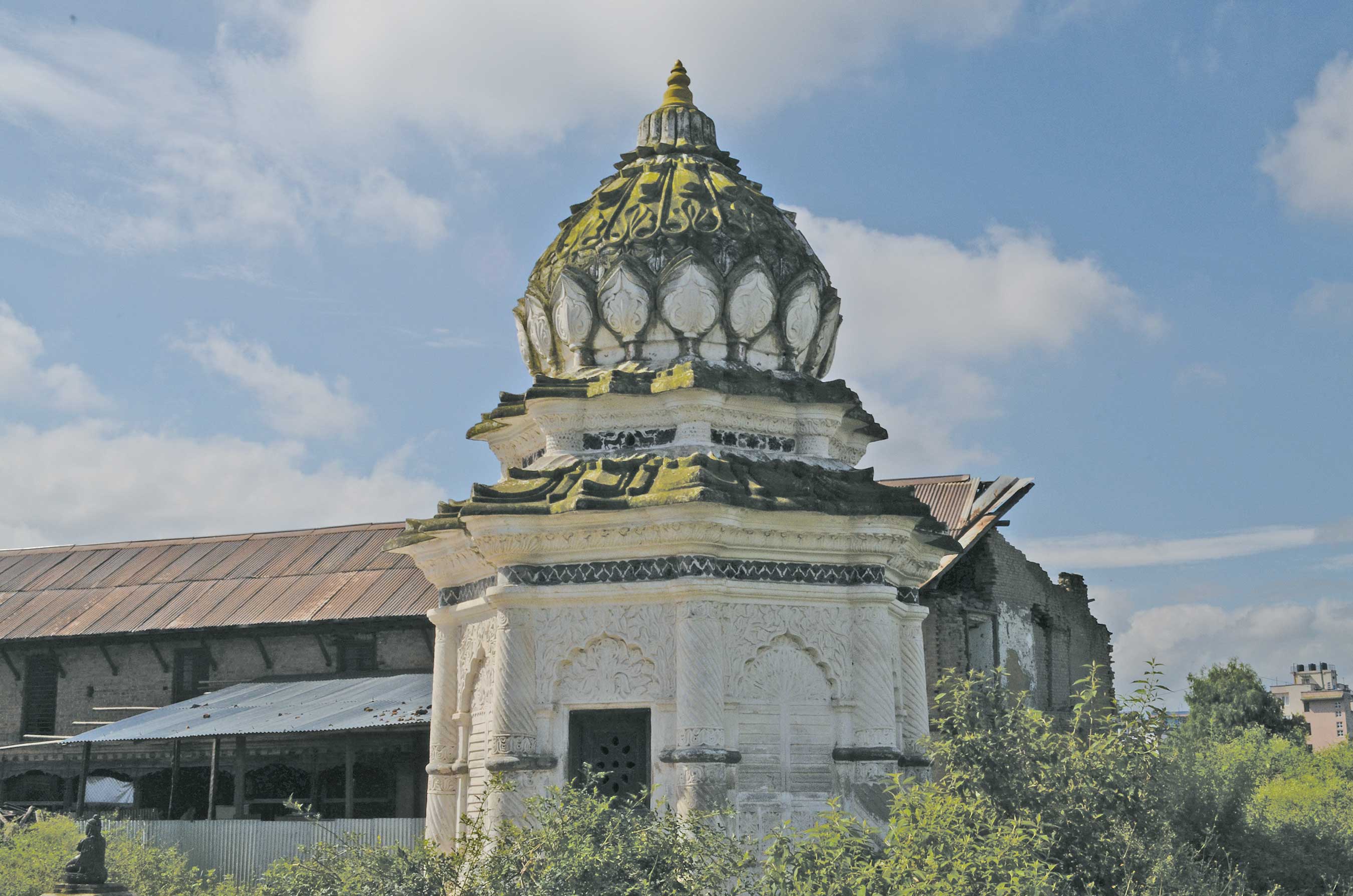W e wander along a flowing river in the Terai’s early morning glory before the heat of a summer’s day begins burning one’s flesh. It’s serene here. We meet a man along the way named Kanchu, inviting us to come and visit his father’s home. It is a simple place but as clean as can be, even with many people living around. We see stacks of clay and a spinning wheel for working it, along with fishing nets lying in the yard. Kanchu tells us his father is a clay worker, and calls out his name.

Laxman Chaudhari demonstrating his skill
Laxman Chaudari appears. A lean and tall man, he has that sharpened jungle stare. He asks if we would like a demonstration of his work. Of course we say yes, intrigued. He grabs a lump of clay and pounds it into a perfect ball, working out each crease and ripple before slamming it on the wheel.
He turns the wheel slowly by hand, which lies balanced on its side, perched on a fulcrum. When the momentum begins to grow he leaps up, grabs a stick and starts to ferociously spin the wheel. Down goes the stick when he feels the speed is right and down goes the man onto his back haunches. He begins molding the spinning mass before my eyes. At first I think it is a cup, then a jug, when finally, 45 odd seconds later, with the wheel still spinning, Laxman produces a perfectly crafted money jar.
Now I agree, you are probably thinking you have seen the same in Bhaktapur. You are right, perhaps. But what you will not see there is Laxman’s traditional and ancestral work.
“Superstition is the poetry of life” - Johann Wolfgang von Goethe, 1819.
We are shown a line of clay, handmade animal statues such as horses, rhinos and tigers. At first, I think how, given the childish form they have been made in, cute they are, but soon I am corrected and informed they are traditional Tharu puja (prayer/ritual) items. Used in the puja room of the home, offerings are made to these animals each day much like in a traditional Hindu home, but with the animal motifs replacing Godly imagery.
Not only is Laxman the maker of these items but is also part of a long lineage of craftsmen with their knowledge having been passed down through generations. He is the only one in all of Bardia district creating these items that are found in the homes of all Tharus.
Sadly for Laxman, life isn’t as rosy as his statues. His family owns no land and literally lives on the earnings of his craft, along with fishing the local rivers and whatever odd jobs he and his family can pick up. But he carries an enduring nature and is teaching his son Kanchu the family trade for future generations.
Pat Kauba is a freelance writer and photographer who can be contacted at patkauba@gmail.com.











